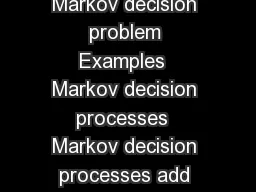PPT-Recitation 8: Processes, Signals,
Author : sherrill-nordquist | Published Date : 2019-06-21
TSHLab Instructor TAs Outline Cachelab Style Process Lifecycle Signal Handling Style Grading Cachelab grades will be available soon Click view source on your latest
Presentation Embed Code
Download Presentation
Download Presentation The PPT/PDF document "Recitation 8: Processes, Signals," is the property of its rightful owner. Permission is granted to download and print the materials on this website for personal, non-commercial use only, and to display it on your personal computer provided you do not modify the materials and that you retain all copyright notices contained in the materials. By downloading content from our website, you accept the terms of this agreement.
Recitation 8: Processes, Signals,: Transcript
TSHLab Instructor TAs Outline Cachelab Style Process Lifecycle Signal Handling Style Grading Cachelab grades will be available soon Click view source on your latest submission to see our feedback. Stochastic processes Probability theory random processes power spectral dens ity Gaussian process Modulation and encoding Basic modulation techniques and binary data transmission AM FM Pulse Modulation PCM DPCM Delta Modulation Information theory In 012 Spring 2009 Recitation 10 MOSFET VI Characteristics Channel Length Modulation Back Gate E64256ect Yesterday we discussed two more aspects in MOSFET IV characteristics Channel length modulation Backgate e64256ect Here is the nMOS IV characteris Unit impulse function Unit step function Their relation in both continuous and discrete domain We shall even look at the Sifting property of the unit impulse function Basic Signals in detail We now introduce formally some of the basic signals namely T state 8712X action or input 8712U uncertainty or disturbance 8712W dynamics functions XUW8594X w w are independent RVs variation state dependent input space 8712U 8838U is set of allowed actions in state at time brPage 5br Policy action is function RelationalAlgebra/ 1 RelationalAlgebra 2 TheBeerDrinkersDatabase 3 TheFilmsDatabase 4 TheEmployeesDatabase Fri,02/05andMon,02/08 Spring2010 RelationalAlgebraandSQL::Recitation#3 RelationalAlgebra/ Set Poetry recitation is more than choosing the shortest, easiest poem just so you can get the assignment over with.. Poetry recitation is more than regurgitating words . quickly. before forget them forever. . Analog and Digital. Analog and Digital Data & Signals. Periodic & Aperiodic Signals. Contents. Information can be voice, image, numeric data, characters or any message that is readable and has meaning to the destination . Analog and Digital. Analog and Digital Data & Signals. Periodic & Aperiodic Signals. Contents. Information can be voice, image, numeric data, characters or any message that is readable and has meaning to the destination . David Hale (. Leidos. ). preview. Ineffective heuristic methods. Ineffective at certain congestion levels. Lack of accountability. Low market share. Competing technologies. Heuristic methods. ASCT’s optimize complex networks in only a few seconds.. Casting. Casting reinterprets a variable as a different type.. For example, remember that a double is a decimal, and an integer is not.. When you divide an integer by an integer, you get an integer.. Instructor: . Dr. Ghazi Al Sukkar. Dept. of Electrical Engineering. The . University of Jordan. Email: . ghazi.alsukkar@ju.edu.jo. 1. Fall 2014. 2. Course Details. Objective. Establish a background in Signal and System Analysis. 15-213: Introduction to Computer Systems. Recitation 9: Monday, October 20. th. , 2014. Sajjan. Agenda. Processes. Signals. I. /O Intro. Shell Lab General. Processes. An instance of an executing program. Human Factors, Weak Signals and Communication H3SE integration kit Module TCT 4.1 Module objectives H3SE integration kit - TCT 4.1 – Human Factors, Weak Signals and Communication – V2 2 At the end of this half-day module: Cumulative Frequency. Note to anybody seeing this. These slides are slightly different from what was used in the recitation to reflect the most accurate information. Answers to students’ questions.
Download Document
Here is the link to download the presentation.
"Recitation 8: Processes, Signals,"The content belongs to its owner. You may download and print it for personal use, without modification, and keep all copyright notices. By downloading, you agree to these terms.
Related Documents














